—————————————————————————————————————————————————-
Legislative Update: Addressing opioids, orcas, and affordable housing
Note from Eileen:
Helping loved ones struggling from the opioid epidemic
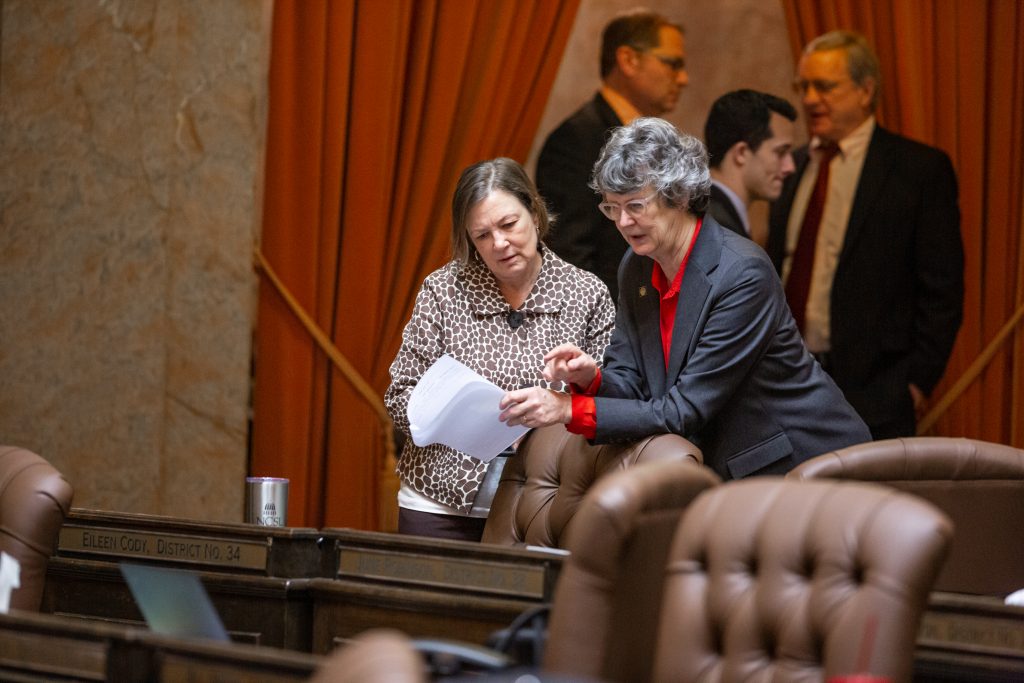
The opioid epidemic is hitting every city, town, and county in Washington. It is a true crisis. In 2017, there were nearly 50,000 opioid related deaths in America. We must take action, which is why I’m proud to be the prime sponsor of HB 1331.
This legislation is a comprehensive approach to fighting the opioid crisis. Some of the provisions of this bill include permitting pharmacists to partially fill certain prescriptions upon patient request, requiring prescribers to discuss the risks of opioids with patients, giving patients the option to refuse an opioid prescription, and allowing hospital emergency departments to dispense opioid overdose reversal medication when a patient is at risk of opioid overdose.
The bill would also empower the Health Care Authority and the Department of Health to partner and work with other state agencies on initiatives that promote a statewide approach in addressing opioid use disorder. Finally, it permits the Secretary of the Department of Health to issue a standing order for opioid reversal medication and require pharmacists to provide written instructions about responding to an opioid overdose when dispensing medication.
Last week, this bill passed out of the Health care & Wellness Committee. I look forward to passing this legislation to save lives and help those in our community who are affected by this crisis.
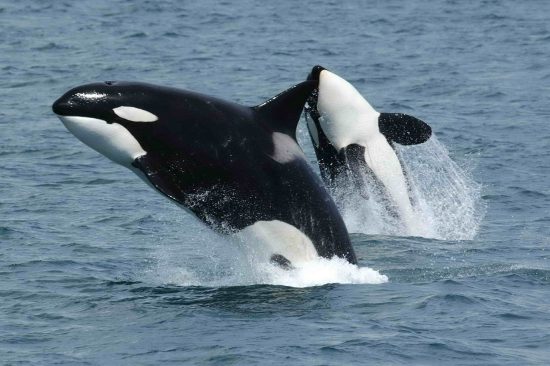 Protecting Southern Resident Orcas
Protecting Southern Resident Orcas
According to the Washington Department of Fish and Wildlife, the Southern Resident orca population was just 74 in November of 2018, representing a 30-year low. One of the many threats to our orca population is Puget Sound vessel traffic. To address that issue, our colleague Rep. Brian Blake introduced HB 1580.
This legislation decreases vessel disturbance to Southern Resident Orcas by permanently increasing the distance vessels must maintain from orcas from 200 yards to 400 yards. It also requires a 7-knot speed limit on any vessel traveling within one-half nautical mile (1013 yards) of a Southern Resident Orca. I’m excited to cosponsor this legislation and hopeful to see it signed by the Governor.
Reaffirming the protections of the Affordable Care Act
Since the passage of the Affordable Care Act in 2010, people have come to expect certain services and protections in their healthcare coverage. For example, insurers are guaranteed to cover essential health benefits like maternity and newborn care, preventive services, and substance use disorder treatment. Furthermore, individuals and families no longer fear being denied coverage for having pre-existing conditions. These are just some of the provisions of the ACA and although Washington state is subject to these protections under federal law, state law alone does not offer the same protections.
On Tuesday, I chaired a committee hearing on HB 1870. This piece of legislation, introduced by my colleague Rep. Lauren Davis, would bring state law in line with the Affordable Care Act. Under this legislation, coverage of essential health benefits, protections for pre-existing conditions, and other ACA provisions would be codified into state law providing health care security to our community.
Washingtonians depend on these important protections and this bill would ensure that they are upheld in our state regardless of any federal action. Joe and I are proud to cosponsor this legislation and we are hopeful to get it passed this session.
Note from Joe:
Affordable Homes and Stable Communities for All
Washington state is facing an affordable housing and homelessness crisis—every district, including ours, is experiencing this crisis. Despite efforts and resources to date, we simply do not have adequate housing options across income levels and across specialized needs in order to keep Washingtonians housed.
This crisis is also not impacting people equally, as renters and people of color are more likely to be overburdened by housing costs, and at greater risk for displacement. Increasing affordable housing stock and mitigating the factors that lead to homelessness are top priorities for House Democrats in the 2019 session.
We are supporting a suite of measures to improve housing affordability, which including increasing funding for affordable housing, expanding tenant protections, reducing duplication in the permitting process, and increasing the housing supply in areas where transit and other infrastructure exists to support it.
Simple Majority for School Bonds
If we had won our elections with 59% of the vote, that would be considered a landslide victory. Yet if a school bond vote receives similar support, it’s considered a failure. That’s because Washington state has an archaic and undemocratic law that requires local school bond votes to receive 60% or more in order to pass. This is a Great Depression era policy that has left too many students struggling to learn in unsafe, overcrowded, deteriorating classrooms and in dilapidated portables that are covering green spaces on school campuses all across our state. The threshold for school bonds should be set at a simple majority. This change is essential to ensure all kids have the chance to learn in safe, comfortable classrooms. This change is long overdue and I am proud to support HB 1184 and HJR 4203, which would lower the school bond threshold to a simple majority. Many thanks to the Seattle Times editorial board for voicing their support for simple majority school bonds.
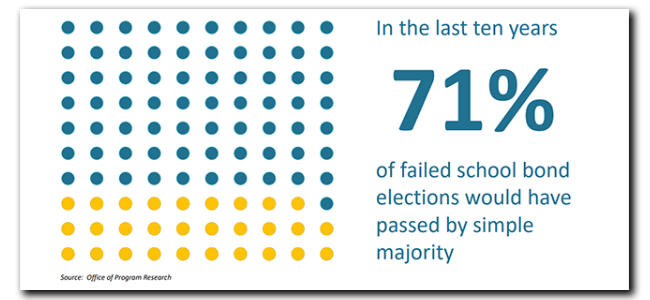
Serve on a board or commission
Washington state has over 230 boards and commissions where community members like you can be appointed and provide input. Participation on a board or commission means that you have the opportunity to use your unique experience and knowledge to shape policies that the governor and legislators are considering.
Currently, Gov. Inslee is looking for appointments to a variety of these boards and commissions, including:
- Transportation Improvement Board
- Power and Conservation Council, Northwest
- Veterans Affairs Advisory Committee
Click here to find out what other boards and commissions have current vacancies, recommend applicants, or apply yourself!
Thanks for reading!

Climate, Orcas, Plastics: Update on House environmental bills
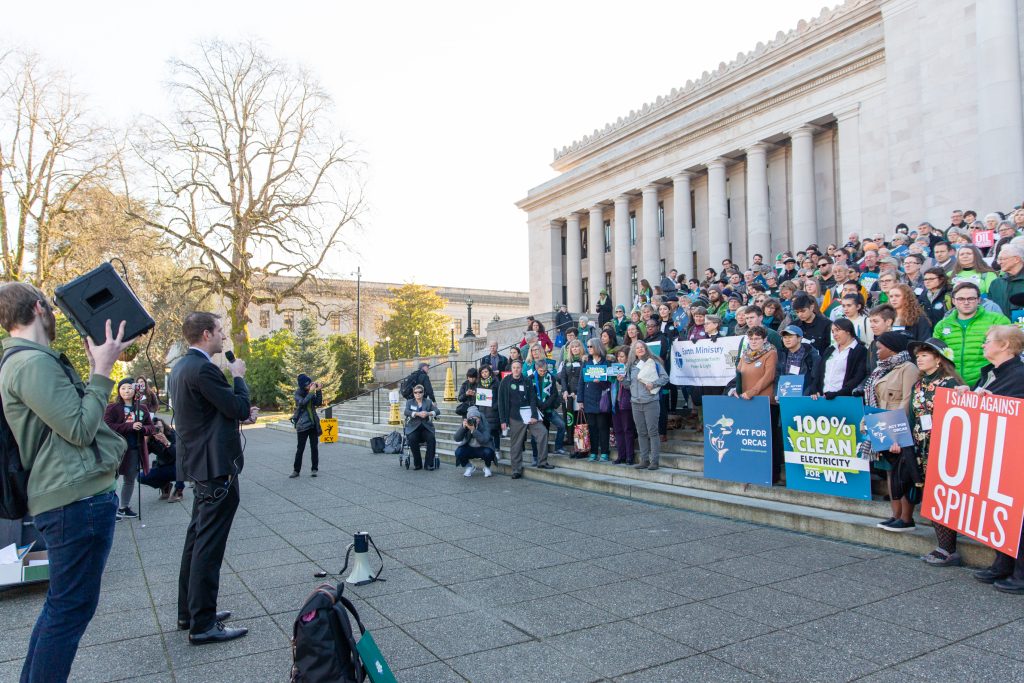
We are one third of the way through the 2019 Legislative Session, and the deadline for bills to advance out of policy committees is coming up next week. As Chair of the House Environment & Energy Committee, I want to provide an update on the status of some of the big environmental bills in the House. Each bill number below includes a link that takes you to the Legislature’s website, where you can sign up for email notifications to continue tracking the bill through the legislative process. I also welcome your emails with any questions, comments or concerns about these or other bills before my committee.
Sincerely,

Rep. Joe Fitzgibbon
Climate bills advance in House
The science is clear: climate change poses significant risks to our economy, our health, and our quality of life. The most recent National Climate Assessment, a federal report prepared by hundreds of scientists, details the disruptive impacts anticipated in the United States and the Pacific Northwest if we don’t take action now to cut greenhouse gas emissions. Several bills that would help move our state toward a cleaner future are moving forward in the House:
Clean Fuel Standard (HB 1110): Addresses our state’s biggest source of greenhouse gas emissions: the transportation sector. Transportation represents 45 percent of our emissions. A clean fuel standard would improve local air quality and provide economic benefits to Washington communities by increasing demand for biofuels produced here. The bill has advanced out of both the Environment & Energy Committee and the Transportation Committee, bringing it closer to a vote on the House floor.
Phasing out super pollutants (HB 1112): Hydrofluorocarbons, or HFCs, are primarily used in commercial and industrial refrigerants. They are known as “super pollutants” because they can be thousands of times more damaging to our climate than carbon dioxide. This bill phases out HFCs in our state and transitions to alternatives. It was voted out of the Environment & Energy committee on January 24 and is scheduled for a hearing in the Appropriations Committee on Monday, February 18.
100% Clean Electricity (HB 1211): This bill will help transition our state to a clean energy future by removing carbon emissions from the generation of electricity. It requires utilities to gradually transition away from fossil fuel-generated electricity, setting a preliminary “coal elimination” deadline of 2025, and a final “clean grid” deadline of 2045. The bill advanced out of the Environment & Energy Committee and is now in the Finance Committee.
Increasing Energy Efficiency (HB 1257): The fastest-growing source of emissions in Washington is emissions from buildings. By retrofitting old buildings and updating standards for new ones, we can cut carbon emissions quickly and economically, while creating good-paying jobs. This bill helps move us down that path. It advanced out of the Environment & Energy Committee this week.
Taking action to protect orcas
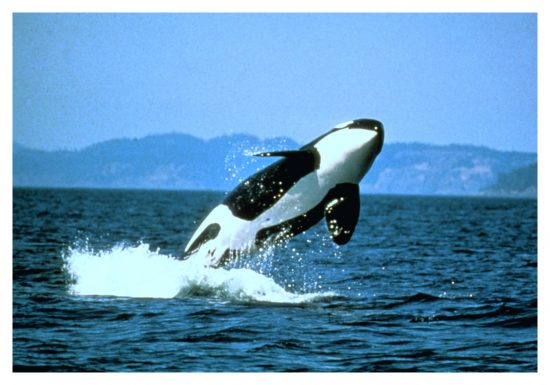
The orca is our state’s official marine mammal, and a significant symbol for Native Americans in our region. But our Southern Resident orca whales are on the verge of extinction. There are only 74 of them left, and if we don’t act to protect them now, this iconic species will not survive. According to the recommendations by the Southern Resident Orca Task Force, the dramatic decline of our orca population is caused by not enough food, pollutants in the water, and dangers from marine vessels and noise.
Like many of you, I was heartbroken by the images of a mother orca carrying her dead calf for over two weeks last year, especially knowing how fragile this population is. That’s why I strongly support the following bills that are moving through the House:
Increasing habitat for Chinook salmon and other forage fish (HB 1579): Habitat continues to be lost to irresponsible development, but this bill’s modest, common-sense, science-based protections can ensure that people, fish and orcas can coexist and thrive in our beautiful state. It was voted out of the Committee on Rural Development, Agriculture, & Natural Resources, and is scheduled for a public hearing in the Appropriations Committee next week.
Protecting our Salish Sea from oil spills (HB 1578): This bill would reduce threats to Southern Resident orcas by improving the safety of oil transportation on our waters. It is scheduled for executive action in the Environment & Energy Committee next week.
Reducing sources of toxic chemicals (HB 1194): Phthalates, PFAS, toxic flame retardants, phenolic compounds, and PCBs are polluting our homes and our waters. Exposure to certain harmful chemicals has been clearly linked to a variety of illnesses, birth defects, and reproductive issues. Reducing sources of toxics will not only help protect children and public health, but the recovery of endangered salmon and orca whales. The bill advanced out of the Environment & Energy Committee this week.
Reducing vessel noise and disturbance (HB 1580): Noise levels from vessels interfere with and can even impede an orca’s ability to communicate and find food. This bill requires vessels to stay at least 400 yards away from Southern Resident orcas and to travel under seven knots within one-half nautical mile of the whales. It is awaiting executive action in the Committee on Rural Development, Agriculture, & Natural Resources.
Addressing plastic pollution
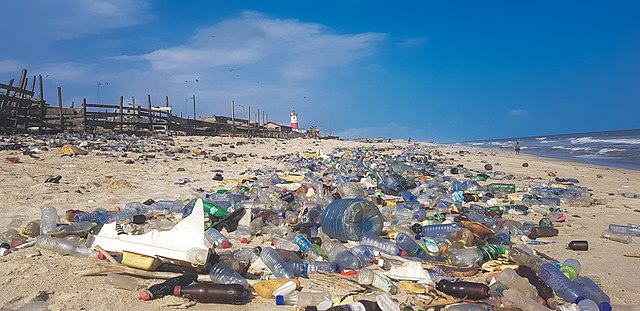
Single-use and disposable plastics are cheap and convenient, but we are becoming increasingly aware of the global problem of plastic pollution. Items like plastic bags break down into harmful microplastics when they degrade in the environment, contaminating our beaches, marine environment and soil. The House is considering several bills aimed at limiting single-use plastics, incentivizing alternative materials, and reducing pollution:
Reducing pollution from plastic bags (HB 1205): Plastic bags are one of the most common items found in cleanups along our coast. They also pose problems in the recycling stream and to commercial composters, as well as contributing to the amount of waste we send to landfills. This bill encourages the use of reusable bags by restricting retail establishments statewide from providing single-use plastic bags. It advanced out of the Environment & Energy committee this week.
Reducing pollution from single-use plastic food service ware (HB 1632): Sets up a timeline and process to restrict the sale or provision of plastic food service products, including utensils, straws, and containers for food service businesses and other retail establishments. It is scheduled for executive action in the Environment & Energy committee next week.
Ensuring consumers have correct information about a product’s biodegradability (HB 1569): This bill restricts the labeling and marketing of certain products, including plastic products, food packaging, and food service ware, to ensure consumers aren’t misled about how compostable or biodegradable these products are. It was voted out of the Environment & Energy committee this week.
Green Tip of the Week

Protect our waterways from pollution by taking your car to a commercial car wash. Every time you wash your car on pavement – like in your driveway – it washes petroleum, phosphorus, copper, and other pollutants that harm marine life down the drain and into Puget Sound. If you do wash your vehicle at home, do so on a lawn or gravel surface, where the water can seep into the ground rather than running into a storm drain.
